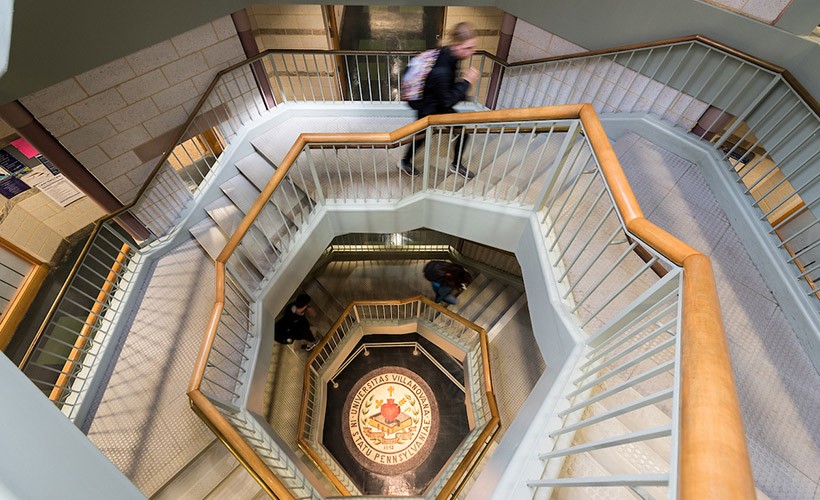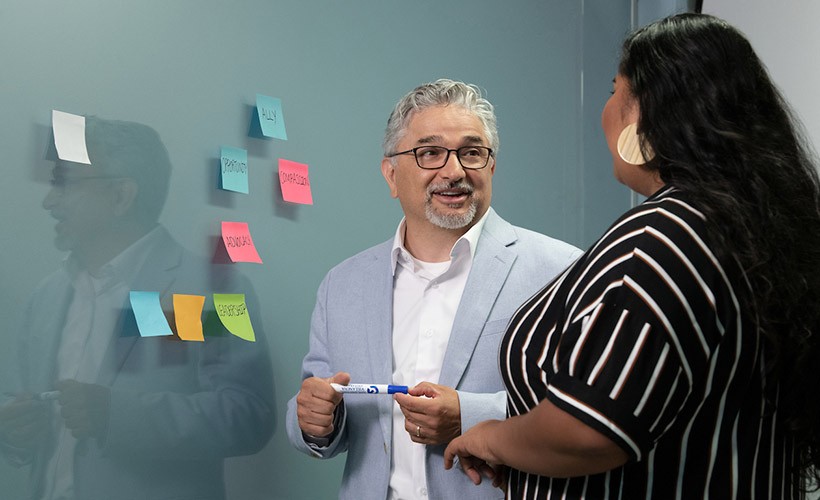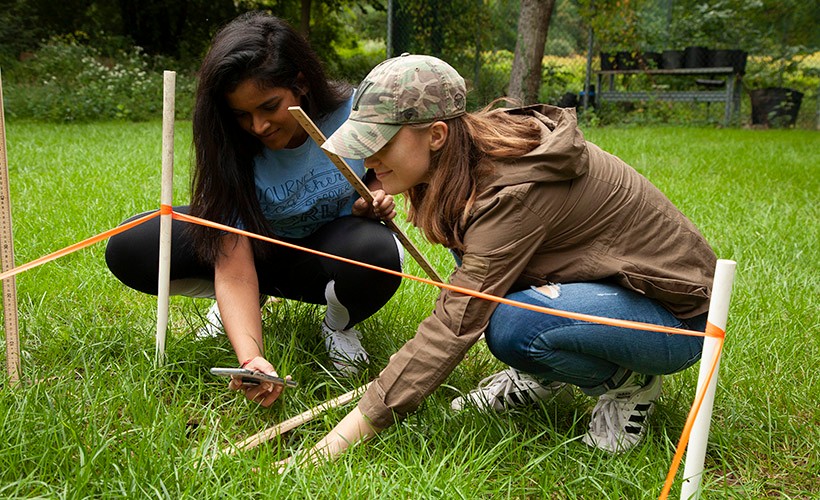GUIDING PRINCIPLES
The Department of Sociology and Criminology critically engages fundamental questions about social actions, crime, and criminal justice through course work, research, and practical experience.
We cultivate students' ability to examine the broader socio-cultural and policy contexts in which behaviors are perceived, assigned meanings, and negotiated. We impart skills for analytically evaluating varieties of social science data and policy, and for understanding the processes through which crimes and other social issues happen, evolve, and change across time and across borders. Through our diverse course offerings, we strive to foster a sense of equity and social justice in our students.
The Department of Sociology and Criminology is committed to providing an inclusive intellectual community that recognizes, values, and embraces diversity in its many forms. Dimensions of diversity include, but are not limited to, race, ethnicity, gender identity, sexuality, social class, ability, age, neurodiversity, political viewpoint, nationality, and religious affiliation. Our goal is to cultivate a culture of meaningful engagement and learning that is enhanced by the richness of experiences, backgrounds, and identities constituting the Villanova community and society more broadly.
Our department is committed to affirming values that oppose racism, sexism, homophobia, xenophobia, transphobia, classism, ageism, and hatred based on religious identity both publicly and explicitly. We take very seriously reports, formal or informal, of harassment and discrimination. We will make every effort to ensure that our commitment to social justice that encompasses values of diversity, equity and inclusion are manifest in our policies, programs, and practices. Each member of our community - faculty, staff, and students - shares in the responsibility to create a positive culture and to safeguard equity, inclusion, dignity, respect, and safety for all. We must all strive to be role models and to promote behaviors that remain consistent with our goals.
Goal 1: Students will be able to situate social issues and problems in complex legal, structural, cultural, and historical backgrounds.
Specific Objectives:
1.1 Students will reflexively connect individual experiences with larger social institutions, structures, and forces.
1.2 Students will acquire detailed knowledge of important social institutions, policies and cultural frameworks that contribute to and ameliorate observed social inequalities.
Goal 2: Students will comprehend and apply sociological theory.
Specific Objectives:
2.1 Students will gain a strong grasp of classical and contemporary sociological theories.
2.2 Students will apply theories to comprehend key social issues in comparative perspectives.
Goal 3: Students will gain exposure and facility with social scientific methods.
Specific Objectives:
3.1 Students will critically assess published research and use sociological theories to develop their own research.
3.2 Students will become aware of ethical concerns related to the conduct of research.
Goal 4: Students will develop and apply a comparative perspective to explain the diversity of human societies.
Specific Objectives:
4.1 Students will be able to evaluate the importance of stratifying forces such as race, class, gender and their consequences.
4.2 Students will be able to explain the importance of diversity to a range of audiences, including the research community, policy makers and the general public.
Goal 1: Students will be able to situate criminological issues and problems in complex, legal, structural, and historical backgrounds.
Specific Objectives:
1.1 Students will reflexively situate individual experiences within larger criminological justice institutions, structures, and forces.
1.2 Students will acquire detailed knowledge of relevant justice institutions, policies and social control frameworks that contribute to and ameliorate observed social inequalities.
Goal 2: Students will comprehend and apply criminological theory.
Specific Objectives:
2.1 Students will gain a strong grasp of classical and contemporary criminological theories.
2.2 Students will apply theories to explain and understand different types of offending and social controls.
Goal 3: Students will gain exposure and facility with social scientific research methods.
Specific Objectives:
3.1 Students will critically assess published research and use criminological theories to develop their own research.
3.2 Students will learn about ethical concerns related to the conduct of criminological research.
Goal 4: Students will develop and apply a comparative perspective to explain criminological frameworks and their applications.
Specific Objectives:
4.1 Students will be able to evaluate the importance of criminological knowledge to a range of audiences, including the research community, policy makers, and the general public.
4.2 Students will be able to explain criminological knowledge to a range of audiences, including the research community, policy makers, and the general public.
DIVERSITY, EQUITY, AND INCLUSION RESOURCES
American Society of Criminology
- Division on Critical Criminology and Social Justice
- Division on People of Color & Crime
- Division on Terrorism & Bias Crimes
- Division of Feminist Criminology
Racial Democracy Crime and Justice Network, Rutgers University School of Criminal Justice
American Sociological Association
Sociologists for Women in Society



